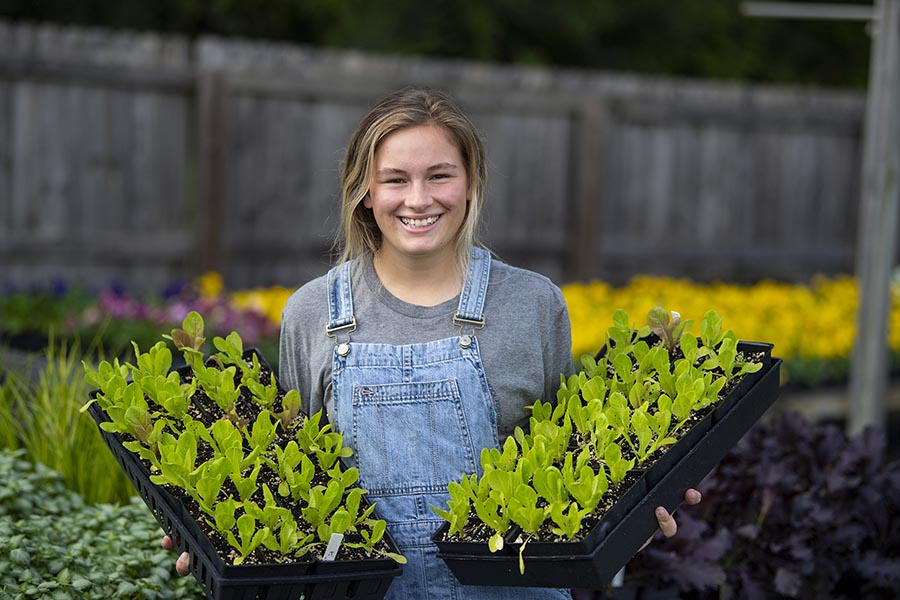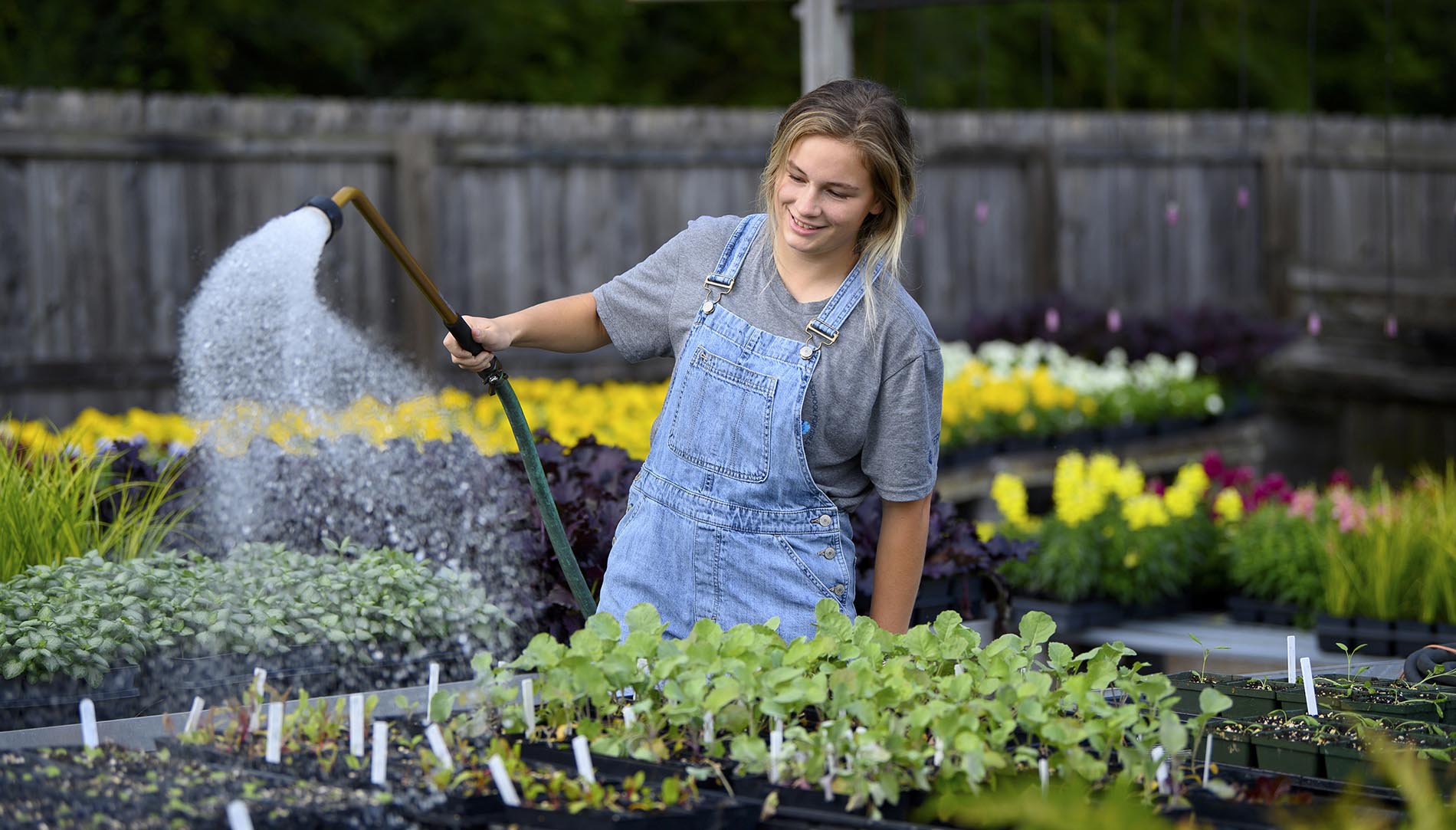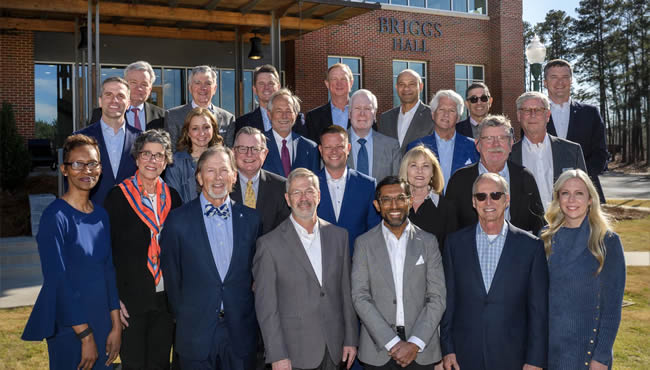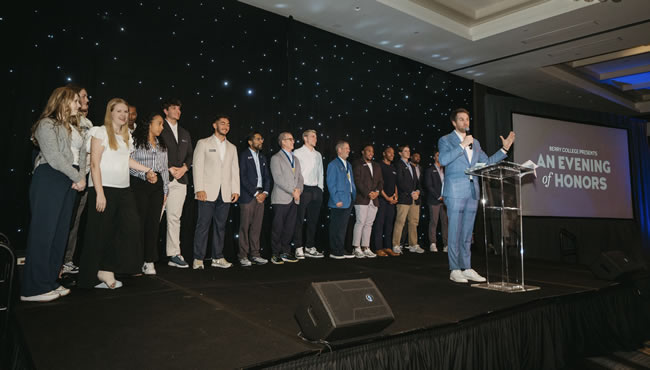By debbie rasure
Isabelle Hill came to Berry College with a love for growing plants and accolades for achievement from the National FFA Organization (formerly Future Farmers of America). Now the environmental studies major is about to graduate having discovered a passion for promoting sustainable farming and educating others about where their food comes from, all while working hard to feed Rome’s hungry and homeless.
Hill’s revelation comes after multiple immersive experiences, including nearly four years managing the fresh produce and plants operation of Season’s Harvest, one of Berry’s 14 student-run enterprises; growing food for local homeless shelters in the garden of the service cottage where she lives on campus; and studying and working on local food insecurity issues alongside her mentor, Dr. Brian Campbell, chair of the Department of Environmental Science and Studies.
“Right from the start, I could tell she was going to be a shining star,” Campbell said, citing Hill’s willingness as a second-semester freshman to take on the huge responsibility of leading Season’s Harvest, as well as her initiative and early ability to delegate and work independently.
Dr. Kevin Renshler, director of the Center for Student Enterprises and Entrepreneurship Development (SEED), concurs: “Isabelle oversees an enterprise that is very labor intensive and needs a lot of individuals contributing in the field, planting and cultivating. She’s done a tremendous job, especially in this time of COVID.”
Hill’s interest in gardening and farming began when she was in middle school, helping her florist mother with arrangements and working beside her grandparents in their home garden. When the agriculture teacher at her Ringgold, Ga., middle school needed someone to compete in a floral arranging competition, Hill enrolled in an agriculture class to qualify and then volunteered for the competition. More ag classes followed throughout middle and high school, as did work in her school’s greenhouse and nursery. She dug into her studies of landscaping and floral culture, eventually claiming the National FFA Organization’s highest recognition, the American FFA Degree, earned by only 2% of its membership and signifying promise for the future and a commitment to going above and beyond to achieve excellence.
Hill brings that same work ethic to her role as Season’s Harvest manager as she develops plans for the garden; harvests and delivers vegetables and flowers; stocks Season’s Harvest goods in The Berry Farms display in The Shipyard (the Berry Student Enterprises storefront located in the Krannert Student Center); staffs the Season’s Harvest booth at a local Saturday farmers market; and distributes unsold produce and perishable goods, such as eggs and cheese, from other student enterprises to local agencies feeding the hungry. She also is active with Rome Food Oasis, a community group sponsored by Georgia Food Oasis and Georgia Organics.
Contributing to her deep well of experience, Hill has taken several Academic Community Engagement courses that paired her with a community partner and allowed her to use information and skills learned in the classroom to solve real-world problems.

“They’ve been my favorite classes,” she enthused. “I’ve written action plans for community outreach, filmed an informational promo and worked on a film; and for the ACE course I’m taking right now, I’m digging through recycle bins to look for common contaminants. I’ve always loved the hands-on approach that a lot of Berry professors have, and these classes really take that to the
next level.”
Hill isn’t sure what she’ll do after graduation but anticipates working with a local farm or nonprofit that focuses on food security. Regardless of her path, Campbell sees a bright future ahead, saying with Hill’s diverse skill set and experience running Season’s Harvest, she could manage an organic farm, a large agriculture distribution organization or even start her own business.
“I’ll probably always grow things,” Hill said. “I’m so happy to have had the opportunities Berry has given me to work with food and people. The most hopeful part of the garden is being able to plant a seed and watch it grow. Once the fruit is ready, you get to pick it and share it with others.”



